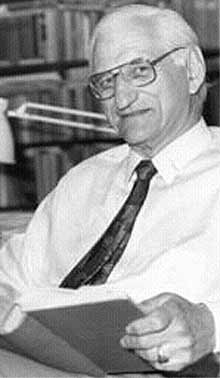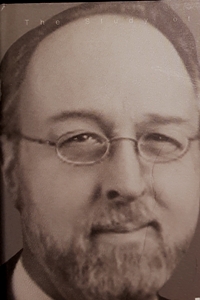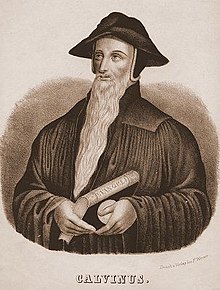
Hermeneutics is the theory and methodology of interpretation, especially the interpretation of biblical texts, wisdom literature, and philosophical texts. As necessary, hermeneutics may include the art of understanding and communication.

Exegesis is a critical explanation or interpretation of a text. The term is traditionally applied to the interpretation of Biblical works. In modern usage, exegesis can involve critical interpretations of virtually any text, including not just religious texts but also philosophy, literature, or virtually any other genre of writing. The phrase Biblical exegesis can be used to distinguish studies of the Bible from other critical textual explanations.
Biblical studies is the academic application of a set of diverse disciplines to the study of the Bible. For its theory and methods, the field draws on disciplines ranging from ancient history, historical criticism, philology, theology, textual criticism, literary criticism, historical backgrounds, mythology, and comparative religion.
Ad fontes is a Latin expression which means "[back] to the sources". The phrase epitomizes the renewed study of Greek and Latin classics in Renaissance humanism, subsequently extended to Biblical texts. The idea in both cases was that sound knowledge depends on the earliest and most fundamental sources.
(Divine) Accommodation is the theological principle that God, while being in His nature unknowable and unreachable, has nevertheless communicated with humanity in a way that humans can understand and to which they can respond, pre-eminently by the incarnation of Christ and similarly, for example, in the Bible.
Biblical hermeneutics is the study of the principles of interpretation concerning the books of the Bible. It is part of the broader field of hermeneutics, which involves the study of principles of interpretation, both theory and methodology, for all forms of communication, nonverbal and verbal.
Biblical literalism or biblicism is a term used differently by different authors concerning biblical interpretation. It can equate to the dictionary definition of literalism: "adherence to the exact letter or the literal sense", where literal means "in accordance with, involving, or being the primary or strict meaning of the word or words; not figurative or metaphorical".
The historical-grammatical method is a modern Christian hermeneutical method that strives to discover the biblical authors' original intended meaning in the text. According to the historical-grammatical method, if based on an analysis of the grammatical style of a passage, it appears that the author intended to convey an account of events that actually happened, then the text should be taken as representing history; passages should only be interpreted symbolically, poetically, or allegorically if to the best of our understanding, that is what the writer intended to convey to the original audience. It is the primary method of interpretation for many conservative Protestant exegetes who reject the historical-critical method to various degrees, in contrast to the overwhelming reliance on historical-critical interpretation in biblical studies at the academic level.
The rule of faith is the name given to the ultimate authority in Christian belief or fundamental hermeneutic (interpretive) standard. It was used by Early Christian writers such as Tertullian. The phrase is sometimes used for early creeds.
Kevin Jon Vanhoozer is an American theologian and current research professor of Systematic Theology at Trinity Evangelical Divinity School (TEDS) in Deerfield, Illinois. Much of Vanhoozer's work focuses on systematic theology, hermeneutics, and postmodernism.

Johan Adam Heyns (1928–1994) was an Afrikaner Calvinist theologian and moderator of the general synod of the Nederduits Gereformeerde Kerk (NGK) in South Africa. He was assassinated at his home in Waterkloof Ridge, Pretoria.

John Calvin believed that Scripture is necessary for human understanding of God's revelation, that it is the equivalent of direct revelation, and that it is both "majestic" and "simple." Calvin's general, explicit exposition of his view of Scripture is found mainly in his Institutes of the Christian Religion.
Daniel Patte is a French-American biblical scholar and author. Patte is, since 2013, Professor Emeritus of Religious Studies, New Testament and Christianity at Vanderbilt University where he taught from 1971. He studied in both European and American schools: following his Baccalauréat in Philosophy he received a Baccalauréat en Théologie (1960) from the Faculté de Théologie Protestante, Montpellier, France, where he met his wife, Aline Teitelbaum; Licence en Théologie, from the University of Geneva, Switzerland, and a Th.D. (1971) from the Jewish Christian Center at Chicago Theological Seminary. As a biblical scholar and teacher in various settings around the world, Patte calls for an ethics of biblical interpretation that involves acknowledging the contextual character of any interpretation of the Bible, as his numerous books and articles indicate. In the 1970s-1980s Patte pioneered structural criticism in biblical studies, then served two terms (1992–98) as the General Editor of Semeia, an Experimental Journal for Biblical Criticism of the Society of Biblical Literature. Patte initiated and chaired programs of the Society of Biblical Literature, including on Semiotic and Exegesis, Romans Through History and Cultures, and, since 2007, Contextual Biblical Interpretation. With colleagues of the Society of Biblical Literature and of the American Academy of Religion involved in these programs, he envisioned and edited A Global Bible Commentary (2004) and The Cambridge Dictionary of Christianity (2010).
Theological hermeneutics is a field of theology, broadly referring to the application of hermeneutics, the theory and methodology of interpretation, to theological texts with theological means, particularly to scripture.

Brevard Springs Childs was an American Old Testament scholar and Professor of Old Testament at Yale University from 1958 until 1999, who is considered one of the most influential biblical scholars of the 20th century.

Richard A. Muller is an American historical theologian.
Christopher R. Seitz is an American Old Testament scholar and theologian known for his work in biblical interpretation and theological hermeneutics. He is the senior research professor of biblical interpretation at Toronto School of Theology, Wycliffe College. He is also an ordained priest in the Episcopal Church, and served as canon theologian in the Episcopal Diocese of Dallas (2008-2015).
The Catholic theology of Scripture has developed much since the Second Vatican Council of Catholic Bishops. This article explains the theology of scripture that has come to dominate in the Catholic Church today. It focuses on the Church's response to various areas of study into the original meaning of texts.

Willem A. VanGemeren is Professor Emeritus of Old Testament and Semitic Languages at Trinity Evangelical Divinity School. He is the author of a number of books, including Interpreting the Prophetic Word (Zondervan) and a commentary on Psalms in the Expositor's Bible Commentary series (Zondervan). He was a senior editor of the five-volume work The New International Dictionary of Old Testament Theology and Exegesis in which ten essays have been compiled to thoroughly explain proper hermeneutics and Biblical interpretation. He is a member of the Society of Biblical Literature, the Evangelical Theological Society, and the Institute for Biblical Research.
Richard C. Gamble is a reformed theologian and a professor. He is the Professor of Systematic Theology at Reformed Presbyterian Theological Seminary in Pittsburgh. He formerly served as an adjunct professor at Puritan Reformed Theological Seminary and Westminster Theological Seminary, a professor at Reformed Theological Seminary, Calvin Theological Seminary, and Westminster Theological Seminary in Philadelphia. He wrote the articles on Brevitas et Facilitas as the hermeneutical method of John Calvin. He is also an author, his most notable work being "The Whole Counsel Of God" Volumes 1, 2, and 3.







